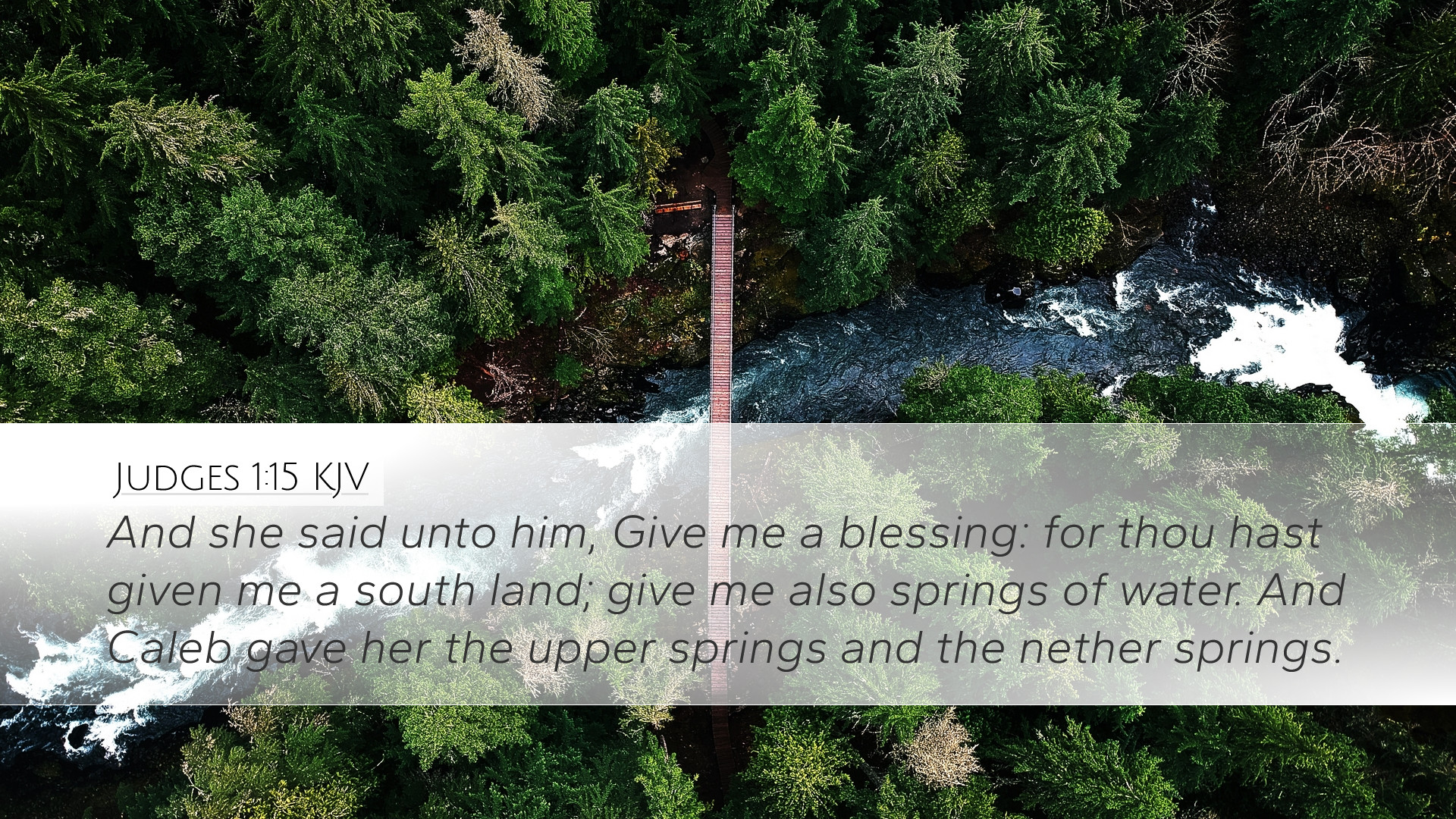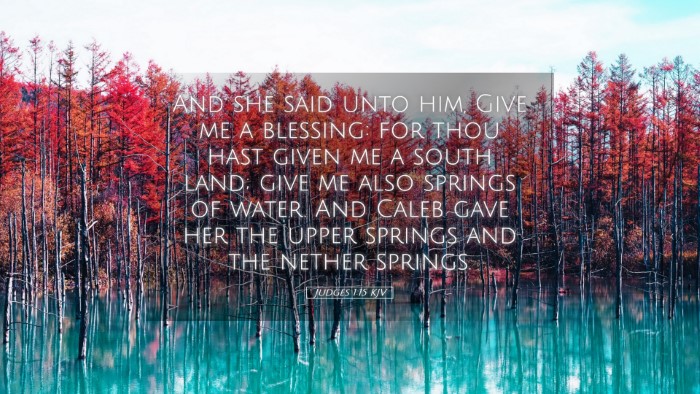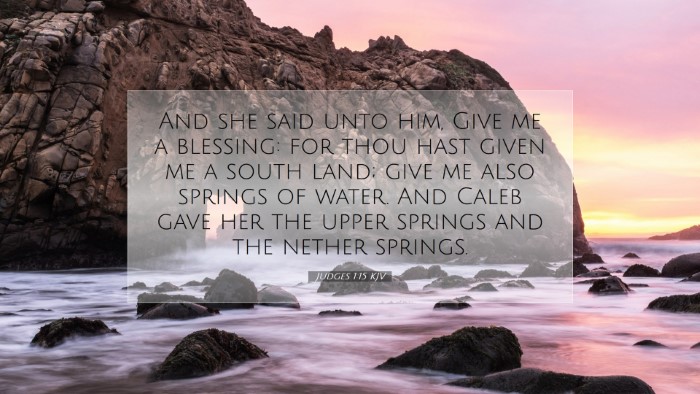Bible Commentary on Judges 1:15
Judges 1:15 (ESV): "And she said to me, 'Give me a blessing. Since you have set me in the land of the Negev, give me also springs of water.' And Caleb gave her the upper springs and the lower springs."
Introduction
The verse under consideration encapsulates a critical moment in the early history of Israel as they settle in the Promised Land. The dialogue between Caleb and his daughter Achsah reveals both familial bonds and the socio-political context within which these interactions occur. This commentary draws insights from significant public domain sources including Matthew Henry, Albert Barnes, and Adam Clarke.
The Context of Judges 1
The Book of Judges narrates the period following Joshua’s conquest of Canaan, emphasizing Israel's need for faithful leadership amidst sporadic rebellion against God. In chapter 1, we see the distribution of land and the initial conquests by various tribes. This backdrop is significant, as it underscores the urgency of claiming inheritance as per God's promise.
Analysis of the Text
Meaning of Blessing
In Judges 1:15, Achsah's request for a blessing is multifaceted. Matthew Henry emphasizes that in ancient Israel, blessings often had tangible components, such as land and resources. This notion extends to the broader theological understanding that a blessing from God carries both spiritual and physical implications. Achsah, recognizing the semi-arid nature of the Negev, seeks assurance not just for wealth but for sustenance through water.
Caleb's Generosity
Caleb's response to his daughter’s request showcases his character as a leader and father. Albert Barnes notes that Caleb had a profound faith in God's provision, which propelled him to secure the land despite its challenges. His willingness to confer not just one, but both upper and lower springs, reflects a deep-seated understanding of God's blessings as abundant and overflowing. Such an act serves as a reminder to pastors and leaders to be generous in their support and encouragement, recognizing the potential of those in their charge.
The Springs: A Symbolic Interpretation
Furthermore, water is a recurrent biblical symbol representing life, cleansing, and God's provision. Adam Clarke elaborates on the significance of the springs in the context of spiritual nourishment. As Achsah sought physical water, it symbolizes the broader spiritual quest for the Living Water that Jesus offers. This interaction can serve as a profound teaching moment for spiritual leaders, illustrating that our requests to God should encompass both physical needs and spiritual aspirations.
The Role of Women in Judges
The passage also subtly highlights the role of women in Israel's narrative, specifically through the character of Achsah. Her assertiveness in seeking a blessing indicates an active participation in the historical context. Matthew Henry points out that her example challenges traditional gender roles and encourages women to be bold in their faith and requests from God. As leaders in church contexts, recognizing and empowering women in ministry is pivotal.
Theological Implications
This passage invites readers to contemplate the nature of inheritance in the Christian faith. The physical inheritance in Canaan serves as an analogy for spiritual inheritance through Christ. Albert Barnes emphasizes that just as the Israelites claimed their geographical blessings, believers today are called to claim their spiritual blessings in Christ, which include access to God and the fullness of spiritual resources.
Implications for Leadership
In considering Caleb’s leadership, there are invaluable lessons on mentorship and support. He not only provides for Achsah but models a faith-filled response to her request. Leaders within the church are encouraged to emulate Caleb's example, fostering environments where congregants feel empowered to voice their needs and aspirations.
Conclusion
Judges 1:15 is a rich text that reflects both the historical reality and the spiritual truths that resonate through Scripture. As we explore the dynamics of familial relationships, the provision of God, and the importance of claiming blessings, it becomes evident that this narrative is not just a historical account but a transformative message for today’s believers. It calls pastors, students, theologians, and scholars into deeper reflection on how they view God's providence, the roles of individuals in God's plan, and the communal aspects of faith inheritance.
Reflection Questions
- What does Achsah's request teach us about approaching God for our needs?
- How can Caleb's example of generosity and leadership inform our church's ministry?
- In what ways can we foster an inclusive environment for the voices of women in ministry?
- How do we understand and claim our spiritual inheritance in our daily lives?


